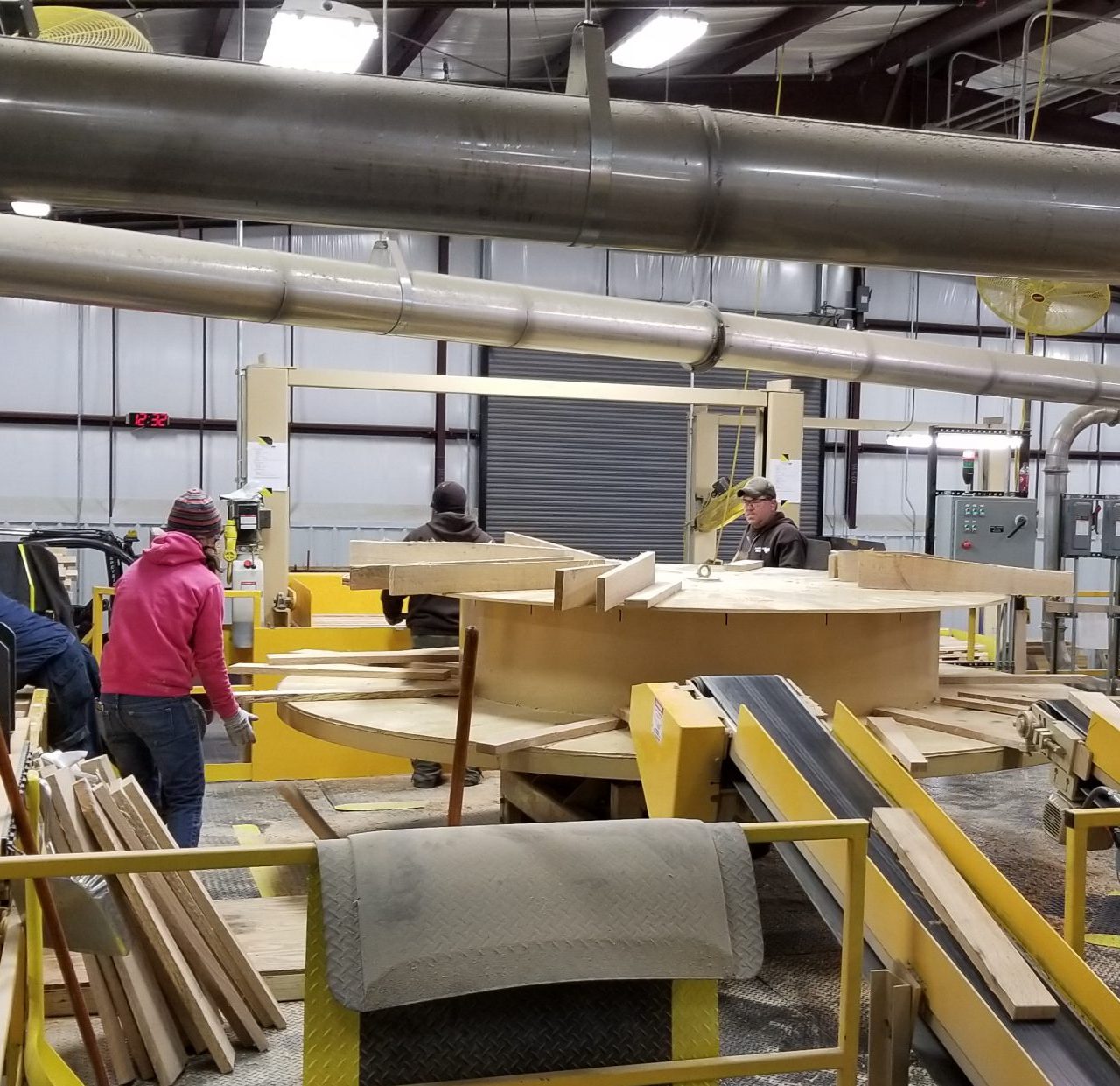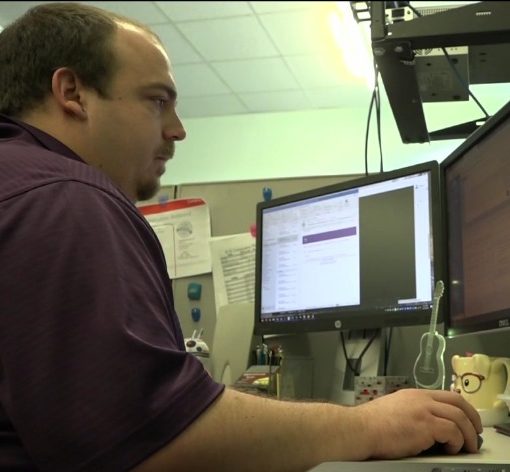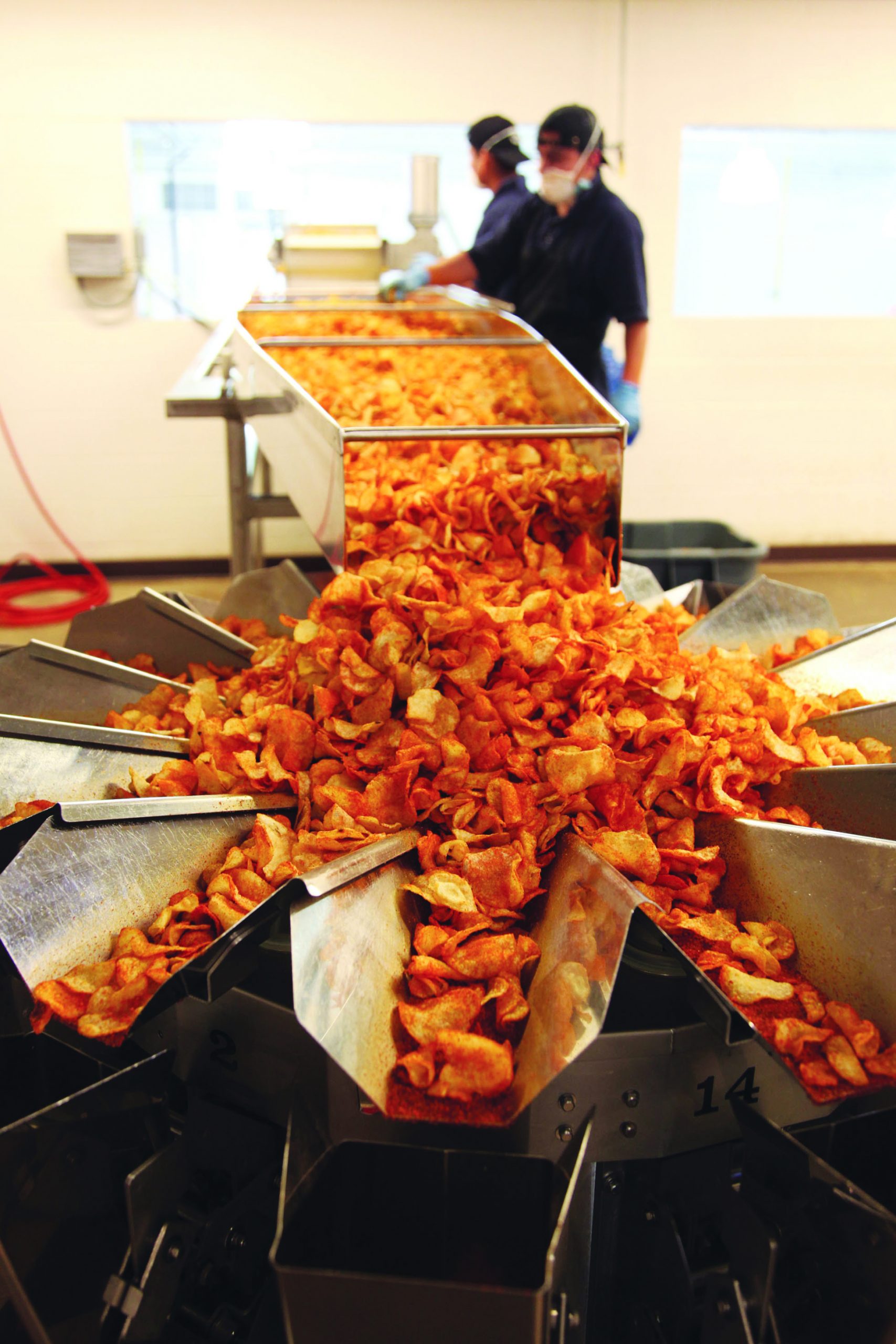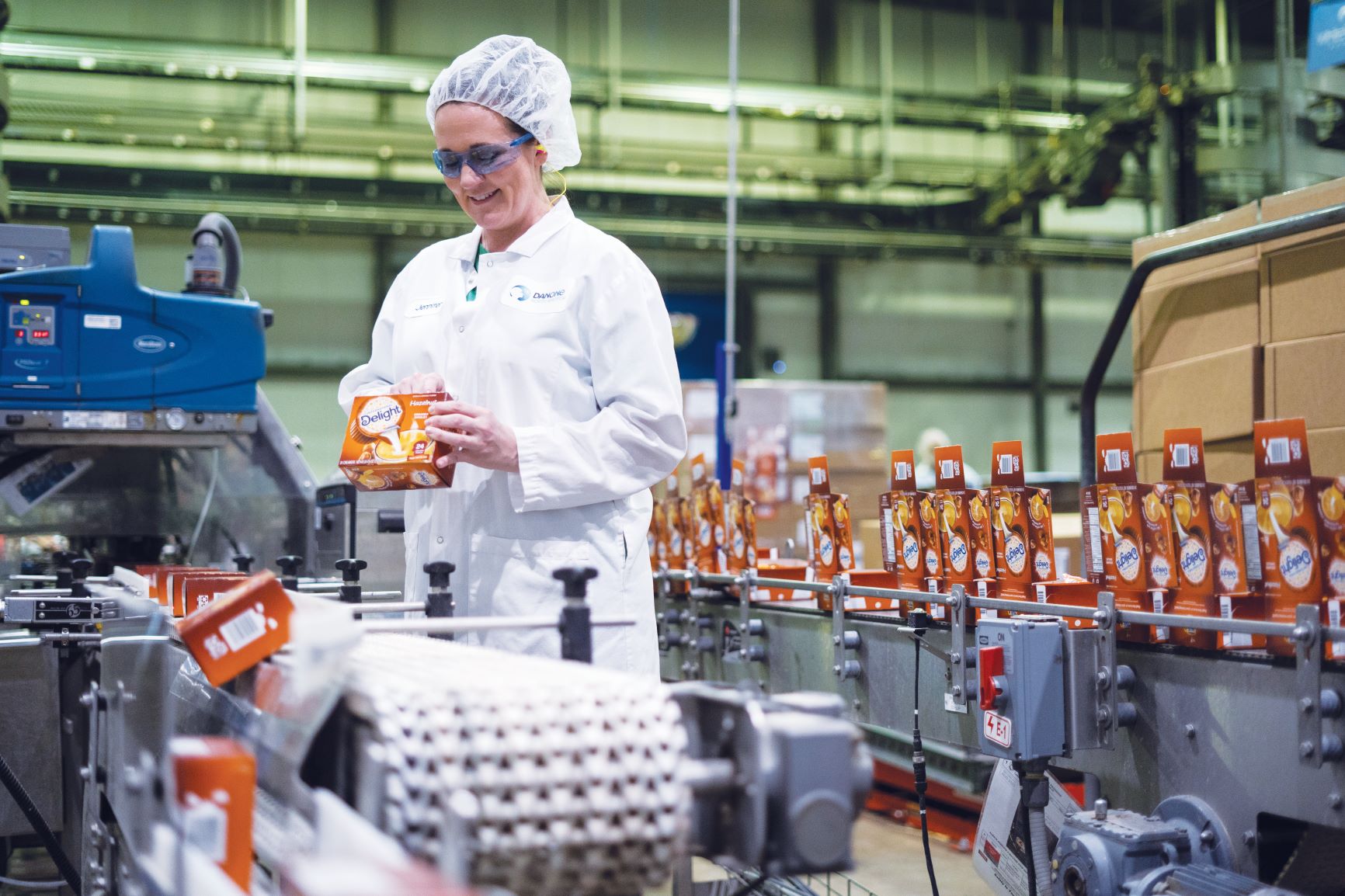Key Industries
- Agribusiness
- Information Technology & Professional Services
- Manufacturing
- Transportation & Logistics
 Agribusiness
Agribusiness Information Technology & Professional Services
Information Technology & Professional Services Manufacturing
Manufacturing Transportation & Logistics
Transportation & Logistics
 Agribusiness
Agribusiness
The Shenandoah Valley is home to four of the top five agriculture counties in Virginia producing more than $1.3 billion annually in commodities sold. According to the 2022 U.S. Department of Agriculture Census, Rockingham, Augusta, Shenandoah and Page Counties are ranked number 1, 2, 4 and 5 respectively as the largest agriculture localities in Virginia. Rockingham County is the state’s powerhouse for agribusiness, impacting over 13,000 jobs regionally relating to the agriculture industry. In addition, the Shenandoah Valley’s employment in agriculture and forestry is 71% above the national average.
Agriculture and agribusiness represent a broad range of companies including forestry operations and farm-dependent operations. Overall, this sector contributed nearly $640 million to the Shenandoah Valley’s GRP in 2023.
Due to its breadth and incorporation of non-traded sectors, agribusinesses have separated and made themselves stand apart from the food and beverage manufacturing sector.

Expansion Made Naturally
In 2016, Bath County was chosen as the location for Speyside Bourbon Cooperage’s first U.S. stave mill manufacturing location. In 2019, within the first year of operation, the Stave Mill announced an expansion thanks to the Shenandoah Valley’s strong manufacturing base and plentiful natural resources.
Learn moreRepresentative Employers and Partners Include:
- AHI – American Hardwood Industries
- Binkley & Hurst
- Blue Ridge Lumber
- James River Equipment
- Neff Lumber
- Northwest Hardwoods
- Speyside Bourbon Cooperage, Inc.
Representative Partners Include:
 Information Technology & Professional Services
Information Technology & Professional Services
Due to the demands of Information Technology (IT) in the marketplace, an advantage our region has is the number of community colleges and 4-year colleges and universities that provide IT training through certifications or graduate degrees. For example, James Madison University’s Center for Forensics and Information Security, Virginia Military Institute’s Computer and Information Sciences with a minor in Cyber Security, Bridgewater College’s degree in Computer Science and Blue Ridge Community College’s Cyber Security classes convey a strong message about computer skills availability.
Analogous to the IT sector is the professional business service sector. With a myriad of programs to choose from, and utilizing many of the same skill sets as computer science, this sector also seeks broader certifications and degrees.
The Shenandoah Valley is one of three targeted locations in Virginia that is part of the Virginia Economic Development Partnership’s Rural and Small Metro Tech Centers Initiative. Thanks to our region’s access to a highly educated workforce, low cost of doing business, and phenomenal quality of life, we’re working with our state partners to encourage companies to find their tech talent in the Shenandoah Valley.

Cybersecurity Workforce Development Project
A GO Virginia state grant allowed the cities of Harrisonburg and Waynesboro to partner with Blue Ridge Community College to develop a cybersecurity training program which trained dozens of analysts and recruited Tiber Creek Consulting to establish an office in Waynesboro.
Learn MoreRepresentative Employers Include:
 Manufacturing
Manufacturing
Driving technology, productivity and innovation, the Shenandoah Valley is home to a host of different manufacturing companies across multiple industries including: food and beverage, plastics, metal and automotive, HVAC and life sciences. Manufacturing has a heavier concentration in the Shenandoah Valley than in most regions of Virginia and, according to the Virginia Employment Commission’s demographic profile, manufacturing constitutes the largest private-sector employment. According to a December 2020 SmartAsset report, the Staunton-Waynesboro Metro Area ranked #5 and the Harrisonburg Metro Area ranked #24 for the best places to work in manufacturing.
This innovation drives investment. In 2020, Cadence, Inc. announced the addition of an International Organization for Standardization (ISO) Class 8 (100,000) cleanroom at its Staunton, Virginia headquarters. Responding quickly to growing customer demand, the new certified cleanroom will be used for development and manufacturing of novel medical devices.
The Shenandoah Valley is also invested in the life sciences. In 2006, SRI International established the Center for Advance Drug Research where they focus on health and biomedical research and drug discovery and development with the ultimate goal of bringing new therapies and diagnostics to market. In 2019, Merck announced an investment of up to $1 billion to expand their Rockingham County facility to increase production of its Human Papillomavirus (HPV) vaccines.
Representative Employers Include:
- Artisan Packaging
- Berry
- Cadence
- Daikin Applied
- Everbrite
- Graphic Packaging International
- Hollister Incorporated
- IAC Group
- Intrapac Inc.
- LSC Communications
- Merck
- Mercury Paper
- Modine
- Montebello Packaging
- Neuman Aluminum
- Nibco
- Packaging Corporation of America
- Pactiv Corporation
- Provides U.S. Inc.
- Rexnord Industries
- SRI International
- Sumitomo Drive Technologies
- Supply One
- Sunlite Plastics
- T&E Meats
- Tenneco Automotive Inc.
- Variform Inc. (Ply Gem)
- VIRTEX (Electronic Manufacturing Services)
Food & Beverage Manufacturing
Many of the Shenandoah Valley’s best kept secrets are name brands being produced in state-of-the-art manufacturing facilities throughout our region.
-

McKee Foods -

DanoneWave
Of the top 100 food and beverage companies in the United States and Canada generated by Food Processing Media Group, the Shenandoah Valley is home to 11 including: Anheuser Busch InBev, Cargill, Coca-Cola Bottling Co., DanoneWave, Dr. Pepper, The Hershey Company, McKee Foods Corporation, Molson Coors Beverage Company, PepsiCo Inc., Perdue Farms and Pilgrims Pride.
The Shenandoah Valley has its own local champions in this sector. Route 11 Potato Chips started production in the Shenandoah Valley in 1992. At the time, Route 11 Chips were only available at local restaurants or for purchase directly from the factory. After a number of expansions, Route 11 is now a local success story and a contender in international markets. Click here to download an infographic highlighting the region’s food and beverage manufacturing assets.

Route 11 Potato Chips Proudly Calls the Shenandoah Valley Home
Sourcing at least 40% of its potatoes from Virginia farmers, Route 11 helped spark the creation of Virginia’s Governor’s Agriculture & Forestry Industries Development Fund, becoming a model for companies to source raw product from Virginia’s vast agricultural portfolio.
Learn More About Incentives

Route 11 Potato Chips Proudly Calls the Shenandoah Valley Home
Sourcing at least 40% of its potatoes from Virginia farmers, Route 11 helped spark the creation of Virginia’s Governor’s Agriculture & Forestry Industries Development Fund, becoming a model for companies to source raw product from Virginia’s vast agricultural portfolio.
Learn More About IncentivesRepresentative Food & Beverage Employers Include:
- Andros Foods North America
- Cargill
- Coca-Cola Bottling Co.
- DanoneWave
- Devil’s Backbone Brewing Company
- Dr Pepper Distribution
- Flow Alkaline Spring Water
- George’s Chicken
- Kerry
- McKee Foods Corporation
- Molson Coors Beverage Company
- Pepsi-Cola Bottling Company of Central Virginia
- Perdue Farms
- Pilgrim’s Pride Corporation
- Route 11 Potato Chips
- Shamrock Farms
- Shenandoah Growers
- Shenandoah Valley Organic
- Shenandoah Valley Water
- T&E Meats
- The Hershey Company
- Turkey Knob Growers
- Veronesi S.p.A.
- Virginia Poultry Growers Cooperative
 Transportation & Logistics
Transportation & Logistics
The Shenandoah Valley’s strategic location and access to markets is key. As John Lesinksi describes in Colliers International 10 Emerging U.S. Industrial Markets to Watch in 2021, “A diverse business base of manufacturers and distributors and a strong local labor market make the I-81 Corridor in the panhandles of Maryland and West Virginia particularly viable alternatives to the Lehigh Valley and Central Pennsylvania. The Virginia Inland Port near Winchester continues to attract importers and exporters who take advantage of the rail link to the Port of Virginia in Hampton Roads and make this section of the I-81 Corridor particularly competitive with the Baltimore-Washington Corridor and I-95 down to Richmond.”
The 137 miles of interstate, via I-81 & I-64, offer 1-day trucking access to major markets including Chicago, Detroit, Boston, Atlanta, Nashville, and Indianapolis. Shenandoah Valley rail connections also provide transport to additional major markets through CSX and Norfolk Southern, and strong short-line railroads, Shenandoah Valley Railroad and Buckingham Branch Railroad.
The Virginia Inland Port (VIP) is the northern Shenandoah Valley’s link to world markets. An intermodal container transfer facility in Front Royal, VIP is a 161-acre facility that brings the The Port of Virginia 220 miles closer through containerized rail service operating five days a week. Access to VIP is one of the reasons companies, like Mercury Paper, have decided to locate their facilities in the Shenandoah Valley.
“Being strategically placed here in the Shenandoah Valley allows us access to all major interstates. We can be right on Interstate 81 in just a few minutes from all three of our facilities that we ship from which allows us to have direct access to our customers and minimize our shipping time,” says Tara Rutherford, Logistics Manager, Mercury Paper Inc. Watch this discussion to hear more from Mercury Paper, The Port of Virginia, Shenandoah Valley Airport, and InterChange Group, Inc. who experience daily how this network fully supports businesses in the Shenandoah Valley. (51:36 min. watch)
Market access and a growing need for additional cold storage across the region inspired InterChange Group, Inc., a regional Third Party Logistics (3PL) provider and developer, to begin their newest project. InterChange Cold Storage is the first of its kind in the Shenandoah Valley in over 20 years. Continuously adapting to market needs, InterChange has established their role as a vital leader in the growing supply chain centered within the region’s thriving food and beverage industry. (1:37 min. watch)
Our interstate infrastructure, rail lines, third-party logistics providers, and inland port facility are complimented and enhanced by regional air service through the Shenandoah Valley Airport (SHD). With non-stop jet service to both Chicago O’Hare and Washington-Dulles international airports on United Express powered by SkyWest, in addition to a full range of general aviation amenities for corporate travel, the SHD prides itself on providing local convenience with global connections.
Representative Employers Include:
- Best Buy Warehousing Logistics Inc.
- Crosby Trucking Services
- Dr. Pepper Distribution
- Eagle Express Lines
- Elk Logistics
- FedEx Ground Distribution
- Houff Transfer Inc.
- InterChange Group, Inc.
- J.B. Hunt Transport
- Marshalls Distribution
- Railside Enterprises
- Shenandoah Valley Airport
- Sysco
- Target Distribution
- Walmart Distribution
- White’s Travel Center
- UPS



